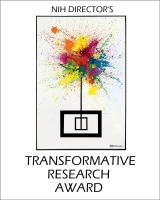2021 Awardees
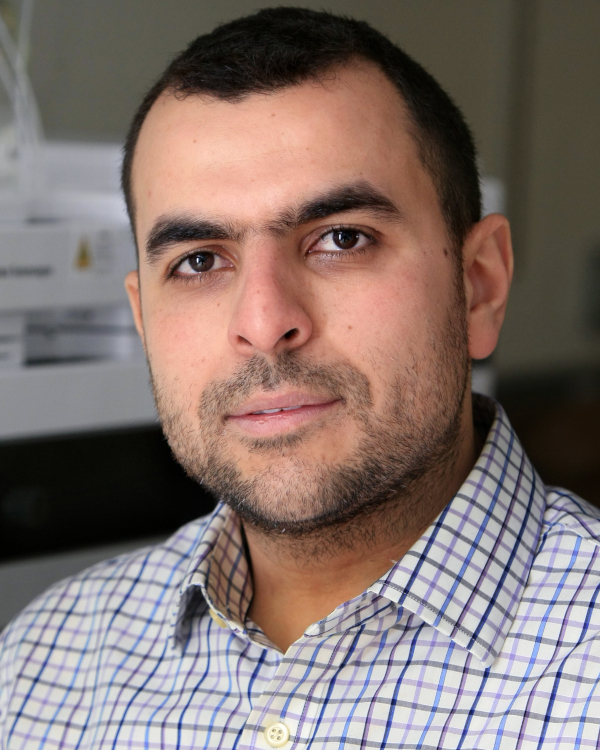
Mohamed S. Abou Donia, Ph.D.
Princeton University
Project Title: Small RNAs as Novel Modulators of Microbe-Host Interactions
Grant ID: R01-AT011963
MPIs: Zemer Gitai, Ph.D. and Coleen T. Murphy, Ph.D.
Mohamed S. Abou Donia received his B.Sc. in Pharmacy from the Faculty of Pharmacy, Suez Canal University, Egypt in 2004, and his Ph.D. from the Medicinal Chemistry Department, School of Pharmacy, University of Utah in 2010. After completing his post-doctoral studies at the Department of Bioengineering and Therapeutic Sciences at the University of California, San Francisco, Mohamed started his independent laboratory in 2014 at the Department of Molecular Biology, Princeton University. There, using a combination of metagenomic, biochemical, and computational approaches, his group investigates the role of the human microbiome in health, disease, and response to therapeutic interventions. Mohamed is a recipient of the NIH Director's New Innovator Award, the Kenneth Rainin Foundation Innovation and Breakthrough Awards, the Pershing Square Sohn Prize for Young Investigators in Cancer Research, the Vilcek Prize for Creative Promise in Biomedical Science, and is named a Pew Biomedical Scholar.

Norman B. Anderson, Ph.D.
Florida State University
Project Title: Transforming Health Equity Research in Integrated Primary Care: Antiracism as a Disruptive Innovation
Grant ID: R01-MD017404
MPIs: Sylvie Naar, Ph.D. and Carrie Pettus, Ph.D., M.S.W.
Norman Anderson is Assistant Vice President for Research and Academic Affairs and Professor of Social Work at Florida State University. He previously served on the faculty of Duke University School of Medicine and Harvard School of Public Health, was the first Director of the NIH Office of Behavioral and Social Sciences Research and was CEO of the American Psychological Association. His research has focused racial and ethnic health inequities, especially the role of stress, racism, and other psycho-social factors impacting African American health. Dr. Anderson is an elected member of the US National Academy of Medicine, a past president of the Society of Behavioral Medicine, and is a fellow of the American Association for the Advancement of Science, the American Psychological Association, the Association for Psychological Science, the Academy of Behavioral Medicine Research, and the Society of Behavioral Medicine. He received his BA from North Carolina Central University, earned masters and doctoral degrees in clinical psychology from the University of North Carolina at Greensboro, and completed postdoctoral fellowships at Duke University School of Medicine.

Ravi V. Bellamkonda, Ph.D
Emory University
Project Title: Tumor Tractor Beam for Diffuse Cancers
Grant ID: R01-CA271304
Prof. Bellamkonda's laboratory is interested in novel approaches to treat diffuse and invasive tumors using engineering strategies. Prof. Bellamkonda currently serves as the Provost and Vice President of Academic Affairs at Emory University where he is a Professor of Biology and Biomedical Engineering.

Ben E. Black, Ph.D.
University of Pennsylvania, Perelman School of Medicine
Project Title: Mendelian Inheritance of Artificial Chromosomes
Grant ID: R01-HG012445
MPI: Michael Lampson, Ph.D.
Ben Black is the Eldridge Reeves Johnson Foundation Professor of Biochemistry & Biophysics at the University of Pennsylvania, co-director of the Penn Center for Genome Integrity, co-director of Penn’s graduate training program in Structural Biology & Molecular Biophysics, and member of the Penn Epigenetics Institute and Abramson Cancer Center. His lab’s longest standing goal has been to understand how particular proteins at the centromere direct accurate chromosome segregation at mitosis and meiosis. His team defined the epigenetic centromere mark to be an octameric nucleosome containing the histone H3 variant, CENP-A, and contributed to the discovery and characterization of the biochemical pathway that propagates the centromere epigenetic mark through cell cycle-coupled CENP-A chromatin assembly; yielding the most prominent current molecular model for the self-propagation of centromeric chromatin. Black and his team used this understanding to develop a new type of artificial chromosome that removes a key barrier limiting mammalian synthetic biology efforts. He has been recognized for his work with a fellowship from the American Cancer Society, a Career Award in the Biomedical Sciences from the Burroughs Wellcome Fund, a Rita Allen Foundation Scholar Award, the Michael S. Brown New Investigator Award, the Charles E. Kaufman Foundation Initiative Award, the inaugural Perelman School of Medicine Dean’s Innovation and Penn’s Discovering the Future Awards, and the Stanley N. Cohen Biomedical Research Award.
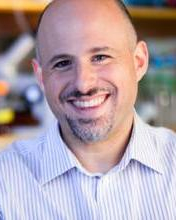
Zemer Gitai, Ph.D.
Princeton University
Project Title: Small RNAs as Novel Modulators of Microbe-Host Interactions
Grant ID: R01-AT011963
MPIs: Mohamed S. Abou Donia, Ph.D. and Coleen T. Murphy, Ph.D.
Dr. Gitai's research focuses on the cell biology of bacteria. His lab studies how cells self-organize across spatial scales, using quantitative, molecular, and engineering approaches to understand to understand problems such as cell shape formation, cytoskeletal function, metabolic organization, and community structure. His work discovered new components of the bacterial cytoskeleton, new functions for bacterial polymers in metabolism, compartmentalization, and chromosome dynamics, and established the importance of protein assembly for unexpected processes like metabolism and pathogenesis. More recently, the Gitai lab has extended its use of quantitative methods to discover novel features of microbe-host interactions and antibiotics with novel mechanisms of action. Dr. Gitai's achievements have been recognized by many prestigious awards, including the NIH Director's Pioneer Award, the NIH New Innovator Award, the Beckman Young Investigator Award, and the HFSP Young Investigator Award.
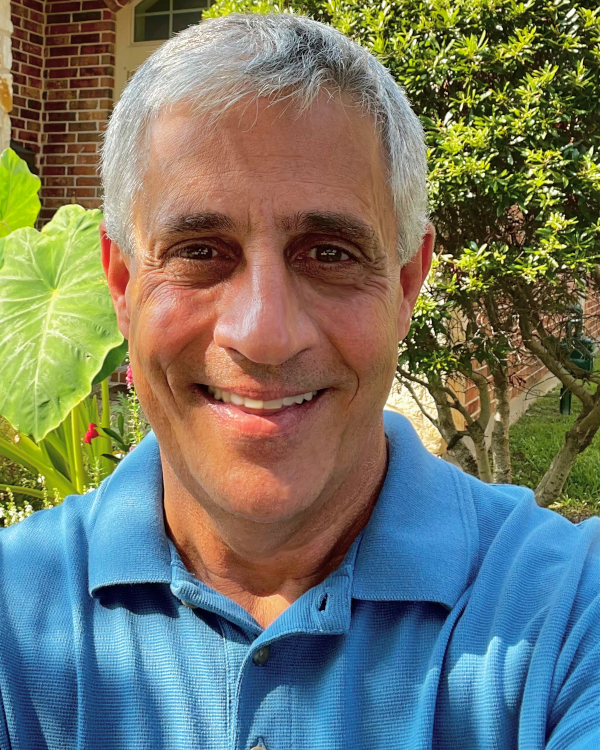
F. Kent Hamra, Ph.D.
UT Southwestern Medical Center
Project Title: The Genetic Basis of Vocal Learning
Grant ID: R01-DC020333
MPIs: Todd Roberts, Ph.D. and Joseph S. Takahashi, Ph.D.
Dr. F. Kent Hamra’s primary research interests are centered on understanding how the cycle of the seminiferous epithelium in testes maintains life-long spermatozoa production via rare germ cells termed “stem spermatogonia”. During his postdoctoral career at UTSouthwestern Medical Center-Dallas, Dr. Hamra focused on first formulating long-sought in vitro and in vivo culture systems for studying the molecular and cellular biology of spermatogenesis, and for generating potent donor germline vectors to genetically engineer new model organisms for biomedical research. Currently, Dr. Hamra’s lab is using their established culture systems to study spermatogenesis and to continue to advance spermiogenetic technologies for biomedical research with collaborator Dr. Ruth Ann Word in the Department of Obstetrics and Gynecology, UT Southwestern-Dallas. Dr. Hamra also collaborates with Drs. Henry L. Wong and Gunda I. Georg, Institute for Therapeutics Discovery and Development, University of Minnesota, on a comparative testicular pharmacology approach designed to discover new classes of molecules resistant to the blood-testis-barrier, and therefore, favorable for designing new therapeutics that can be delivered into the testes’ immune-privileged compartment for fertility regulation or host defense. Here, Dr. Hamra collaborates with Drs. Todd F. Roberts and Joseph S. Takahashi, Department of Neurobiology, UT Southwestern-Dallas on this exciting new NIH project that taps deep into the power of forward genetics to unveil how genome sequences encode vocal learning traits in a most relevant songbird model.

K. Sean Kimbro, Ph.D.
North Carolina Central University
Project Title: Addressing the Biology of Health Disparities by Targeting Geographical Ancestry-Driven Variants of Immunity
Grant ID: R01-MD017405
MPIs: Hernán Navarro, Ph.D. and Kevin P. Williams, Ph.D.
K. Sean Kimbro is a Professor of Biological and Biomedical Sciences at North Carolina Central University. He received his B.A. from Washington University in St. Louis, his Ph.D. from Indiana University in Bloomington and conducted post-doctoral training at Harvard Medical School and the National Institutes of Environmental Health Sciences, NIH. He has served as the Director of the Julius L. Chambers, Biomedical/Biotechnology Research Institute, and lead PI on the NIH P20 Center of Excellence grant, NCCU Center for Translational Health Equality Research exploring the causes and solutions to eliminate health disparities with an emphasis on cancer and cardiovascular metabolic diseases. His laboratory focuses on the biology of health disparities and the role of ancestral innate immune adaptations to indigenous pathogens that contribute to complex diseases. In his most recent work, he has identified multiple circulating microRNAs and novel cytokines in patients of African descent with Type 2 Diabetes, genomic variants related to breast and prostate cancer risk, and continues to explore the role of the immune system in health disparities amongst African Americans.

Michael Lampson, Ph.D.
University of Pennsylvania
Project Title: Mendelian Inheritance of Artificial Chromosomes
Grant ID: R01-HG012445
MPI: Ben E. Black, Ph.D.
Michael Lampson is a Professor of Biology at the University of Pennsylvania. His lab pursues a variety of questions related to the cell cycle and cell division, using both mitotic and meiotic model systems. Studies from his lab have addressed mechanisms that ensure accurate chromosome segregation, challenges of the extended meiotic cell cycle in mammalian oocytes, epigenetic inheritance of centromeres through the germline, and cell biology of meiotic drive. Many of these studies have relied on developing new approaches: model systems exploiting natural variation in mouse centromeres and experimental tools to measure and manipulate key activities in living cells, such as biosensors for mitotic kinases and photocaged chemical dimerizers for optogenetic control of protein localization.

Coleen T. Murphy, Ph.D.
Princeton University
Project Title: Small RNAs as Novel Modulators of Microbe-Host Interactions
Grant ID: R01-AT011963
MPIs: Mohamed S. Abou Donia, Ph.D. and Zemer Gitai, Ph.D.
Coleen T. Murphy is a Professor of Genomics and Molecular Biology at Princeton University. She graduated from the University of Houston with a B.S. in Biochemistry & Biophysics, earned her doctorate in Biochemistry at Stanford University, then did her postdoctoral work at UCSF with Dr. Cynthia Kenyon, where she identified the set of genes downstream of the insulin signaling/FOXO longevity pathway. In her lab at Princeton, Dr. Murphy’s team has developed C. elegans models of human “quality of life” aging phenotypes, including cognitive aging and reproductive aging, and identified remarkably well-conserved genetic pathways that can extend each of these processes with age. Most recently, Dr. Murphy’s team made the surprising discoveries that C. elegans can “read” the small RNAs that bacteria produce and use the information to avoid pathogens, and transmit this learned information both vertically (transgenerationally) and horizontally (to neighboring animals) via a retrotransposon’s viral-like particles. These results have opened up new avenues of research into memory transfer, transgenerational inheritance, and small-RNA-mediated trans-kingdom communication.
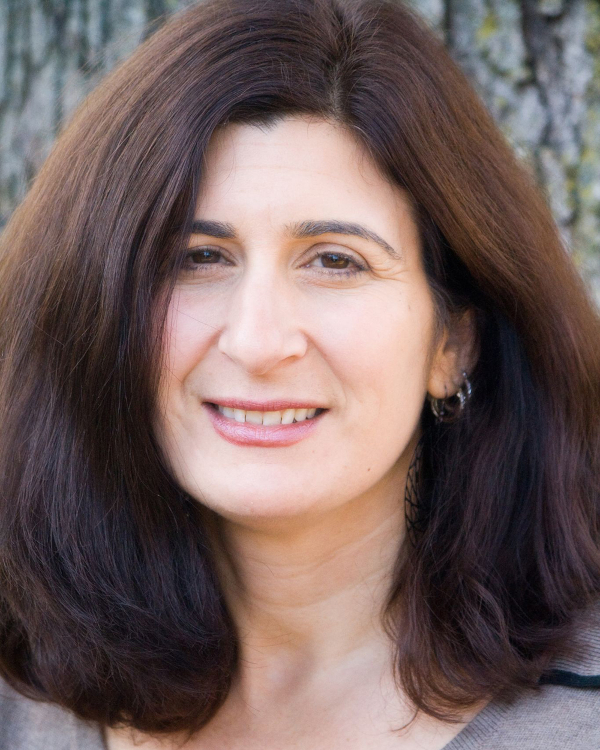
Sylvie Naar, Ph.D.
Florida State University
Project Title: Transforming Health Equity Research in Integrated Primary Care: Antiracism as a Disruptive Innovation
Grant ID: R01-MD017404
MPIs: Norman B. Anderson, Ph.D. and Carrie Pettus, Ph.D., M.S.W.
Dr. Sylvie Naar is a Distinguished Endowed Professor at the Florida State University College of Medicine's Department of Behavioral Sciences and Social Medicine, where she is the founding Director of the Center for Translational Behavioral Science and the Director of the University's KL2 program. She is a clinical researcher with more than two decades of studies across the spectrum of translational behavioral science to improve health among ethnic, sexual and gender minority populations. Her work includes early phase trials translating basic behavioral science into new interventions, randomized clinical trials, comparative effectiveness trials and implementation science trials, all related to improving health equity in minority populations. She has had two center grants focusing on provider communication when working with minority youth and caregivers. Dr. Naar completed her Bachelor's degree at the University of Michigan, her Master's and PhD in Clinical Psychology at the University of Colorado, and completed a Residency and Fellowship in Pediatric Psychology at Wayne State University and the Children’s Hospital of Michigan.
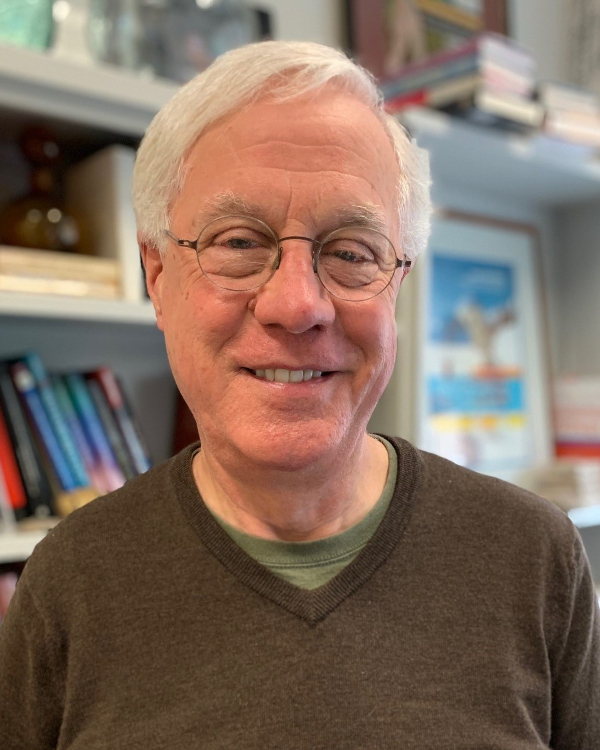
Joe Nadeau, Ph.D.
Maine Medical Center Research Institute
Project Title: Master Regulators of Unexplained Variation in Disease Risk
Grant ID: R01-HG012444
MPI: J. Andrew Pospisilik, Ph.D.
Joe Nadeau is Faculty Scientist in the Center for Molecular Medicine at the Maine Medical Center Research Institute. He is known for his research on unusual modes of inheritance and the origins of phenotypic variation, including pioneering work on comparative mapping and genome evolution, complex genetic traits and epistasis, transgenerational epigenetic inheritance, and the genetics of gamete choice at fertilization. Dr. Nadeau received a B.A. degree from the University of Maine and a Ph.D. from Boston University; he served as postdoctoral fellow at the Max Planck Institute in Tubingen and at the Jackson Laboratory. His work has been supported with funds from the National Institutes of Health, the National Science Foundation, the American Cancer Society, and the Keck Foundation. He is a Fellow of the American Association for the Advancement of Science and served on the Advisory Council for the National Human Genome Research Institute and as chair of the Scientific Advisory Board for the Max Planck Institute for Molecular Genetics in Berlin. Dr. Nadeau’s work was recognized with the Smithsonian Award for Innovation in Information Technology, the Naomi Kanof Award for Contributions to Clinical Research, the RR Hawkins Award from the American Publishers Association, and an NIH Director’s Pioneer Award.
Hernán Navarro, Ph.D.
North Carolina Central University
Project Title: Addressing the Biology of Health Disparities by Targeting Geographical Ancestry-Driven Variants of Immunity
Grant ID: R01-MD017405
MPIs: K. Sean Kimbro, Ph.D. and Kevin P. Williams, Ph.D.
Hernán Navarro is Director of the Biomanufacturing Research Institute and Technology Enterprise (BRITE) and Associate Research Professor in Pharmaceutical Sciences at North Carolina Central University. His research focuses on the discovery of anti-addiction medications. He earned his B.S. degree from Duke University, Ph.D. from the University of Kentucky, and he was an N.R.S.A. postdoctoral fellow in the Department of Pharmacology, Duke University Medical Center.
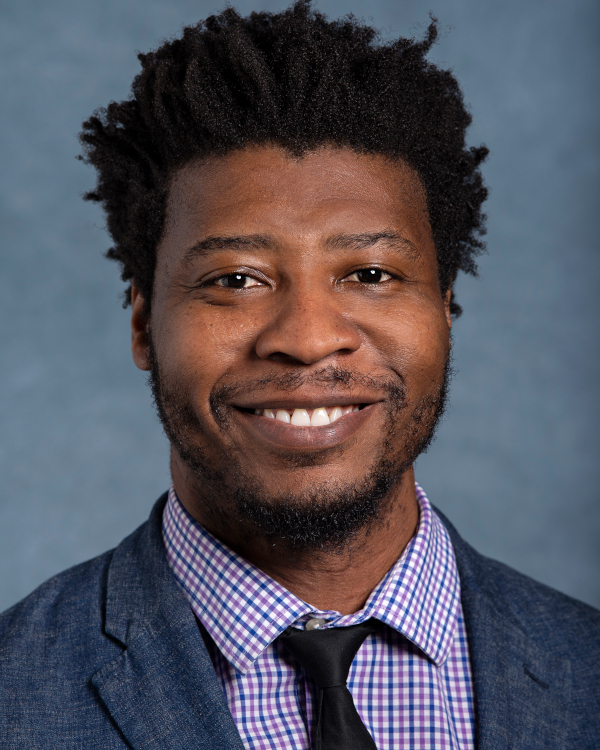
Derick Okwan, M.D., Ph.D.
Cedars-Sinai Medical Center
Project Title: High Dimensional Atlas of Circulating Neutrophils as Reporters of Solid Organ Functional Status
Grant ID: R01-ES034235
Derick Okwan is an instructor of Pathology at Cedars Sinai Medical Center. After his B.A. at Middlebury College, he completed his MD and PhD in immunology and molecular pathogenesis at Emory University. Dr Okwan's research focuses on understanding neutrophil dysfunction in chronic inflammatory diseases, and how to effectively target these cells to improve outcomes in chronic diseases.
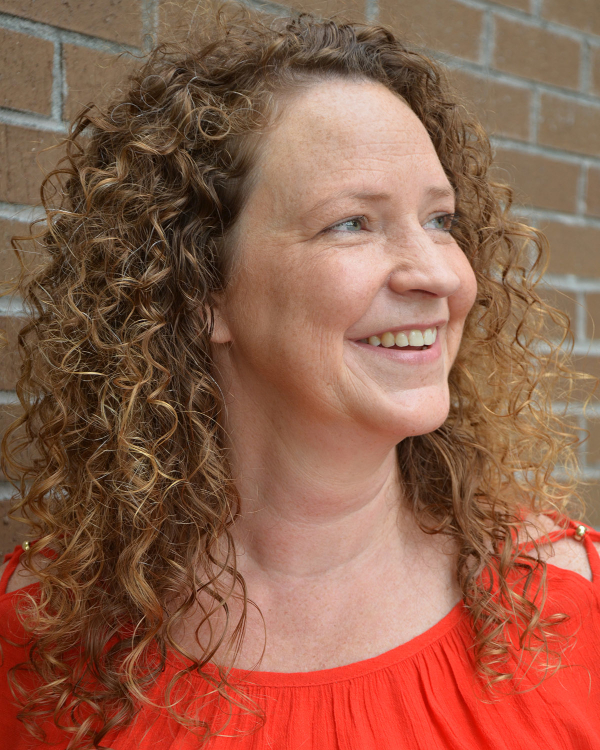
Carrie Pettus, Ph.D., M.S.W.
Florida State University; Institute for Justice Research and Development
Project Title: Transforming Health Equity Research in Integrated Primary Care: Antiracism as a Disruptive Innovation
Grant ID: R01-MD017404
MPIs: Norman B. Anderson, Ph.D. and Sylvie Naar, Ph.D.
Dr. Carrie Pettus is Associate Professor of Social Work at Florida State University and Founding Executive Director of the Institute for Justice Research and Development. Pettus conducts applied research on smart decarceration of prisons and jails through policy and practice intervention development. Pettus generates research on ameliorating racial, economic, and behavioral health disproportionality. She works with community partners to develop interventions to enhance positive social support, treat trauma experiences and behavioral health disorders, and generate well-being for those impacted by criminal justice involvement. Dr. Pettus holds a doctorate in social work from the University of North Carolina at Chapel Hill.

J. Andrew Pospisilik, Ph.D.
Van Andel Institute
Project Title: Master Regulators of Unexplained Variation in Disease Risk
Grant ID: R01-HG012444
MPI: Joe Nadeau, Ph.D.
Dr. J. Andrew Pospisilik seeks to understand how we become who we are, and how our disease susceptibility is defined from early on in life. His long term goal is to see how much of disease susceptibility can be predicted already at birth, and to identify epigenetic mechanisms that govern that susceptibility. He earned his Ph.D. from University of British Columbia and completed a postdoctoral fellowship at IMBA before establishing a lab at the Max Planck Institute in 2010. In 2018, he joined Van Andel Institute, where he serves as a professor and chair of the Institute’s Department of Epigenetics. Dr. Pospisilik has made extensive contributions to the field, including development of new tools for understanding epigenetic variability and intergenerational control of disease.

Todd Roberts, Ph.D.
UT Southwestern Medical Center
Project Title: The Genetic Basis of Vocal Learning
Grant ID: R01-DC020333
MPIs: F. Kent Hamra, Ph.D. and Joseph S. Takahashi, Ph.D.
Todd Roberts is a neuroscientist and runs a research laboratory at UT Southwestern Medical Center as an Associate Professor in the Department of Neuroscience, a Thomas O. Hicks Scholar in Medical Research, and an Investigator in the O’Donnell Brain Institute. He received his Ph.D. in Neuroscience and Cognitive Science at the University of Maryland and completed his postdoctoral training in neurobiology at Duke University before opening his UT Southwestern laboratory in 2013. His lab uses a variety of optical, electrophysiological, molecular, and genetic approaches to examine how songbirds learn their song(s). The goal of this research program is to elucidate the neural circuit mechanisms for how young animals learn to imitate social/communicative behaviors from adults and how this form of learning is disrupted in developmental disorders that impact speech and language learning. The Roberts lab is funded through grants from the NIH, NSF and the Simons Foundation and Todd is a recipient of the Klingenstein-Simons Neuroscience Scholar Award and a NARSAD Young Investigator Award from the Brain and Behavior Research Foundation.
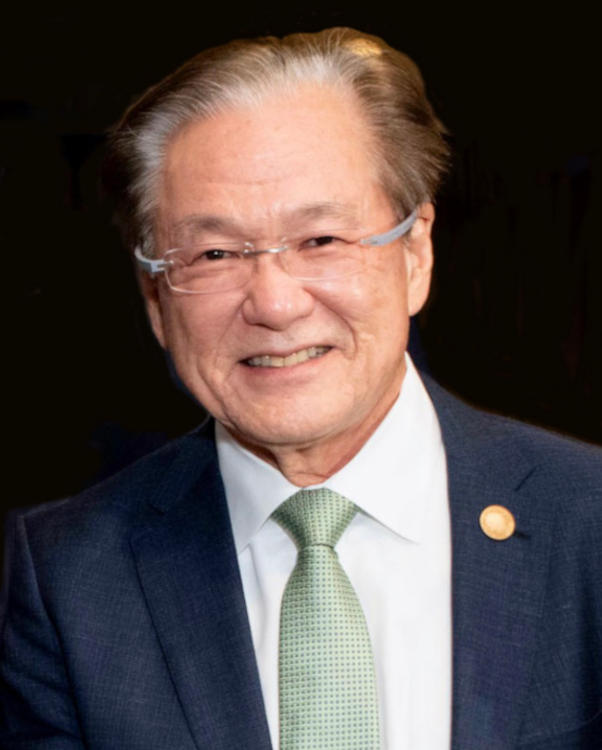
Joseph S. Takahashi, Ph.D.
University of Texas Southwestern Medical Center; Howard Hughes Medical Institute
Project Title: The Genetic Basis of Vocal Learning
Grant ID: R01-DC020333
MPIs: F. Kent Hamra, Ph.D. and Todd Roberts, Ph.D.
Joseph S. Takahashi, PhD is the Loyd B. Sands Distinguished Chair in Neuroscience, Investigator in the Howard Hughes Medical Institute, and Chair of the Department of Neuroscience at the University of Texas Southwestern Medical Center in Dallas. Dr. Takahashi utilizes forward genetics and positional cloning in the mouse as a tool for discovery of genes underlying neurobiology and behavior, and his discovery of the mouse and human clock genes led to a description of a conserved circadian clock mechanism in animals. He graduated from Swarthmore College, Pennsylvania, with a BA in Biology; did his graduate studies with Michael Menaker at UT Austin and University of Oregon, Eugene (PhD in 1981). He was Pharmacology Research Associate at the NIMH and joined the faculty of Northwestern University in 1983 until 2009. His awards include W. Alden Spencer Award in Neuroscience from Columbia, and the Gruber Neuroscience Prize. He is a Fellow of the American Academy of Arts and Sciences and member of both the National Academy of Sciences and the National Academy of Medicine.

Duane R. Wesemann, M.D., Ph.D.
Brigham and Women's Hospital; Harvard Medical School; Food Allergy Science Initiative; Ragon Institute of MGH, MIT, and Harvard
Project Title: Flipped Germinal Centers
Grant ID: R01-AI169619
Dr. Wesemann is an immunologist at Brigham and Women’s Hospital and Associate Professor of Medicine at Harvard Medical School. He is also a member of the Food Allergy Science Initiative and an associate member of the Ragon Institute of MGH, MIT, and Harvard. He cares for patients with immune deficiency and dysregulation and leads a laboratory studying fundamentals of adaptive immunity. The Wesemann laboratory uses human studies, animal models, cellular biology, single cell transcriptomics, and computation to elucidate underlying features regulating durability, elasticity, and evolution of antibody recognition capacity. [Link to Lab Website: http://wesemann.bwh.harvard.edu/]

Kevin P. Williams, Ph.D.
North Carolina Central University
Project Title: Addressing the Biology of Health Disparities by Targeting Geographical Ancestry-Driven Variants of Immunity
Grant ID: R01-MD017405
MPIs: K. Sean Kimbro, Ph.D. and Hernán Navarro, Ph.D.
Kevin Williams is the current Merck Professor in Integrated Biosciences at NCCU. Prior to joining NCCU, he spent 15 years in the biopharmaceutical industry. His laboratory focuses on the identification and development of novel hedgehog pathway inhibitors and the role of the hedgehog pathway in cancer and alcohol-induced birth defects. He received his B.Sc. from the University of Bath and his Ph.D. from the University of Cambridge. He was a postdoctoral fellow at Massachusetts General Hospital and the Joslin Diabetes Center in Boston.
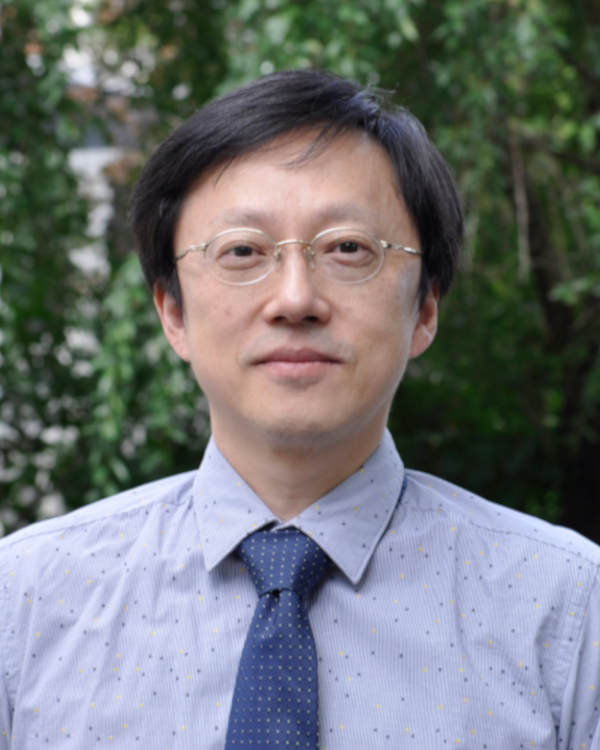
Seok-Hyun Andy Yun, Ph.D.
Massachusetts General Hospital; Harvard Medical School
Project Title: Laser Particles for Multi-Dimensional Single-Cell Analysis
Grant ID: R01-EB033155
Dr. Yun is a Patricia and Scott Eston MGH Research Scholar and a Professor at the Wellman Center for Photomedicine and Harvard Medical School. He was born and educated in South Korea, receiving his doctorate in Physics at KAIST. His research in the field of biomedical optics contributed to the development of several light-based technologies, such as Brillouin microscopy, swept source optical coherence tomography, cell lasers, and laser particles, as tools for clinical medicine and life science research. He holds over 100 patents and is keen on translating lab inventions to commercialization. He is a recipient of NIH Director's Pioneer Award in 2016.
Amyotrophic Lateral Sclerosis (ALS) Awards Through the Accelerating Leading-Edge Science in ALS (ALS2) Initiative

Stuart Batterman, Ph.D.
University of Michigan
Project Title: Developing Novel Strategies for Personalized Treatment and Prevention of ALS: Leveraging the Global Exposome, Genome, Epigenome, Metabolome, and Inflammasome with Data Science in a Case/Control Cohort
Grant ID: R01-NS127188
MPIs: Eva L. Feldman, M.D., Ph.D., Stephen Goutman, M.D., M.S., and Maureen A. Sartor, Ph.D.
Stuart Batterman is Professor of Environmental Health Sciences and Professor of Global Public Health in the School of Public Health, and Professor of Civil & Environmental Engineering in the College of Engineering, at the University of Michigan. He also is Center Director of the Center for Occupational Health and Safety Engineering, Leader of the Exposure Assessment Core of the Michigan Center on Lifestage Exposures and Disease, and Center Director of the Environmental Toxicology and Epidemiology Program. His research and teaching interests address exposure and health risk assessment, and environmental management. He is particularly interested in outdoor and indoor air pollutants, biological monitoring environmental epidemiology, environmental engineering, and the impacts of pollutants on vulnerable and sensitive populations.

Veronique V. Belzil, Ph.D.
Mayo Clinic
Project Title: Identification of TDP-43 Modifiers Through Single-Cell Transcriptional and Epigenomic Dissection of ALS and FTLD-MND
Grant ID: R01-NS127187
MPIs: Christopher Donnelly, Ph.D., Myriam Heiman, Ph.D., and Manolis Kellis, Ph.D., M.Eng.
Funded by the National Institute of Neurological Disorders and Stroke and NIH Common Fund
Dr. Belzil graduated with a Bachelor’s degree in Psychology from McGill University, Canada, in 2003, and a Master’s degree in Psychology from Walden University, USA, in 2007. She then received her graduate training in the laboratory of Dr. Guy A. Rouleau—one of the foremost leaders in human medical genetics and amyotrophic lateral sclerosis (ALS) research—and received her Ph.D. in Neuroscience from the University of Montreal, Canada, in 2012. After graduating, Dr. Belzil started her postdoctoral research training at the Mayo Clinic in Florida under the supervision of Leonard Petrucelli, a world leader in neurodegeneration research, where she initiated and developed the ALS genetic/epigenetic program she is now independently leading.
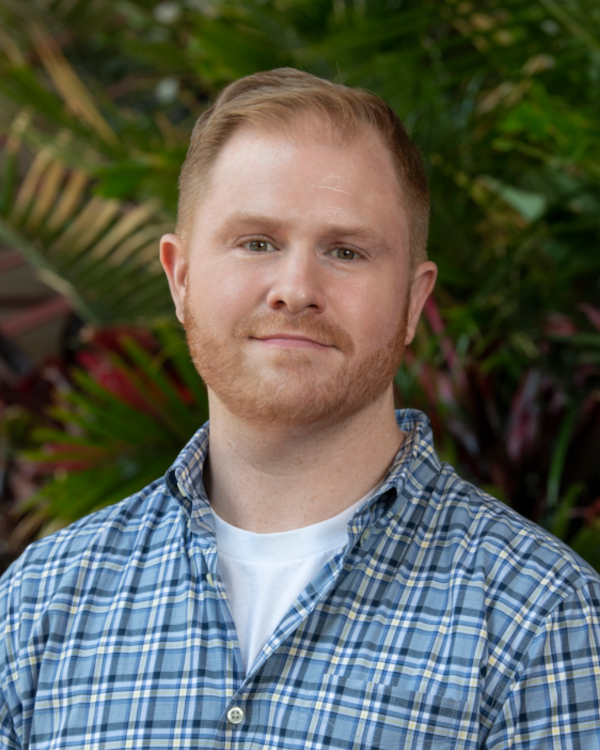
Christopher Donnelly, Ph.D.
University of Pittsburgh School of Medicine; University of Pittsburgh Brain Institute
Project Title: Identification of TDP-43 Modifiers Through Single-Cell Transcriptional and Epigenomic Dissection of ALS and FTLD-MND
Grant ID: R01-NS127187
MPIs: Veronique V. Belzil, Ph.D., Myriam Heiman, Ph.D., and Manolis Kellis, Ph.D., M.Eng.
Funded by the National Institute of Neurological Disorders and Stroke and NIH Common Fund
Christopher Donnelly is an Assistant Professor of Neurobiology at the University of Pittsburgh School of Medicine and Scientific Director of the LiveLikeLou Center for ALS Research at the University of Pittsburgh Brain Institute. He received his B.S. from Drexel University, his Ph.D. from the University of Delaware, and completed postdoctoral training at Johns Hopkins School of Medicine. Dr. Donnelly’s laboratory studies the molecular pathobiology of neurodegenerative diseases with a focus on Amyotrophic Lateral Sclerosis (ALS) and related disorders, such as Frontotemporal Dementia (FTD), and utilizes patient-derived neurons as a primary model system. The lab is particularly interested in understanding the contribution of RNA binding protein dysfunction, trafficking, and phase separation in neurodegeneration with the goal of identifying novel molecular or genetic approaches for therapeutic intervention.
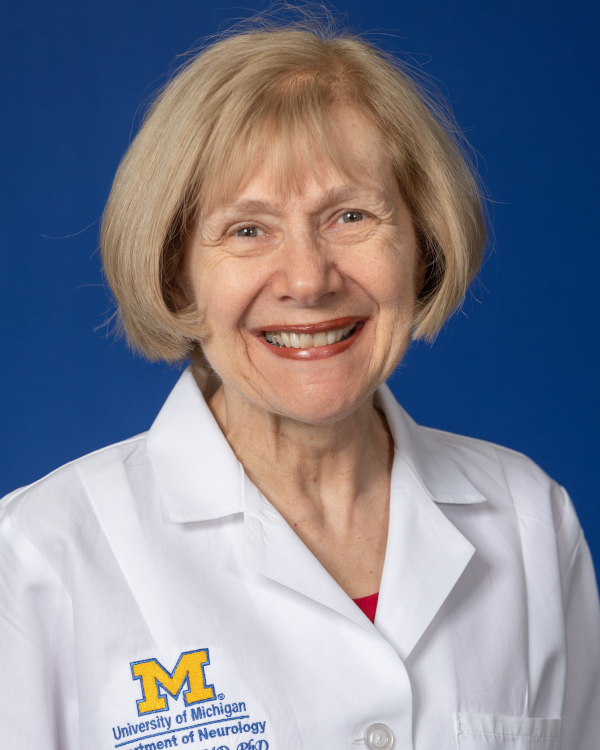
Eva L. Feldman, M.D., Ph.D.
University of MIchigan Medical School
Project Title: Developing Novel Strategies for Personalized Treatment and Prevention of ALS: Leveraging the Global Exposome, Genome, Epigenome, Metabolome, and Inflammasome with Data Science in a Case/Control Cohort
Grant ID: R01-NS127188
MPIs: Stuart Batterman, Ph.D., Stephen Goutman, M.D., M.S., and Maureen A. Sartor, Ph.D.
Eva L. Feldman MD, PhD, Russell N. DeJong Professor of Neurology at Michigan Medicine and Director of the ALS Center of Excellence is a renowned neurologist and neuroscientist who has devoted her career towards understanding the etiology of neurological disorders and developing new treatments. She currently directs a research program of 25 scientists across multiple disciplines with an emphasis on amyotrophic lateral sclerosis (ALS). She served as the Principal Investigator of the first two FDA-approved clinical trials of stem cell transplantation in amyotrophic lateral sclerosis (ALS) and is funded by NIEHS and the Center for Disease Control for her pioneering work on identifying environmental pollutants as an underlying contributing cause of ALS. With an H index of 105, her findings are published in over 460 manuscripts, 70 book chapters, and 4 books and she has trained over 100 basic science and clinical neuromuscular fellows. Dr. Feldman served as President of the American Neurological Association from 2011-2013, the third woman to hold this position in 130 years, is a fellow of the American Association for the Advancement of Science and a member of the Johns Hopkins Society of Scholars, the Association of University Professors and the National Academy of Medicine.
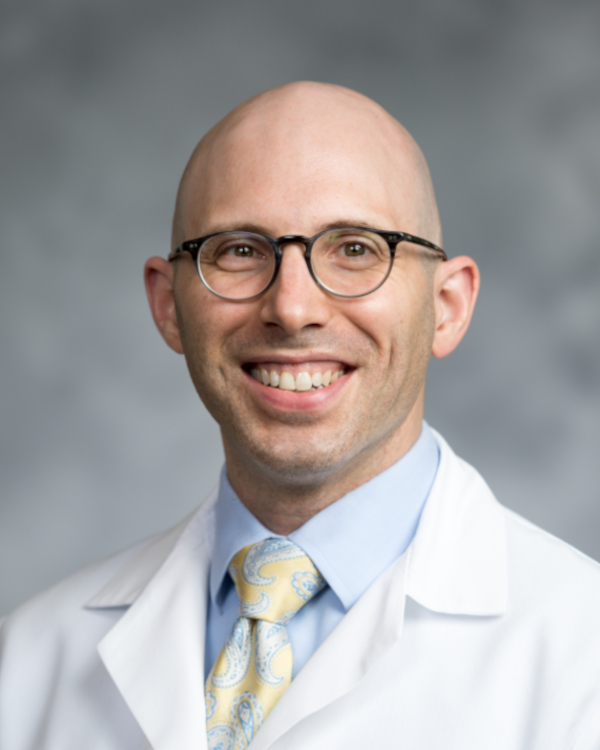
Stephen Goutman, M.D., M.S.
University of Michigan
Project Title: Developing Novel Strategies for Personalized Treatment and Prevention of ALS: Leveraging the Global Exposome, Genome, Epigenome, Metabolome, and Inflammasome with Data Science in a Case/Control Cohort
Grant ID: R01-NS127188
MPIs: Stuart Batterman, Ph.D., Eva L. Feldman, M.D., Ph.D., and Maureen A. Sartor, Ph.D.
Stephen Goutman, MD, MS is an Associate Professor of Neurology and Director of the Pranger ALS Clinic at University of Michigan. He completed his undergraduate degree in neuroscience at the Johns Hopkins University (Baltimore, MD) and his medical degree at the University of Chicago Pritzker School of Medicine (Chicago, IL). He received an ALS Young Investigator Award in 2016 at the ALS Clinical Trials Guidelines Workshop (Airlie House). Dr. Goutman’s research focuses on identifying the intersection of non-genetic and genetic factors on amyotrophic lateral sclerosis (ALS) to inform new treatment paradigms and risk factor modification. Dr. Goutman also studies the role of immunity and inflammation in ALS with the goal of developing personalized approaches to ALS therapeutics.
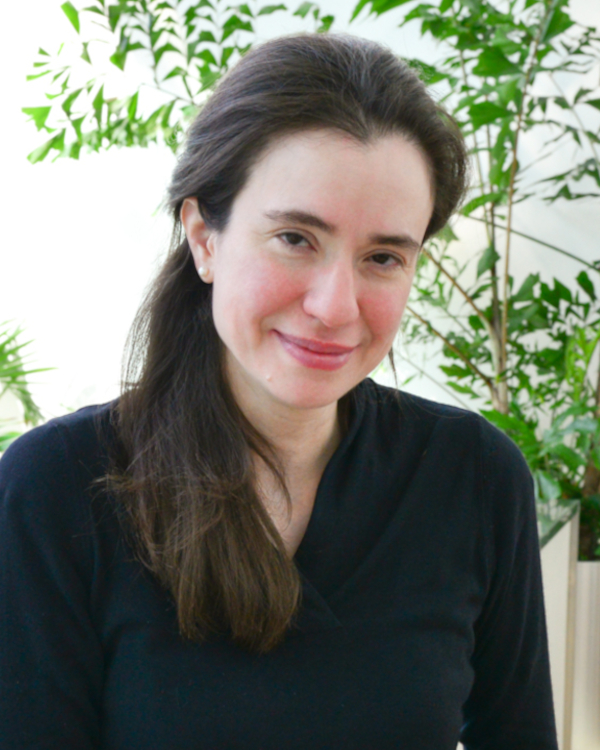
Myriam Heiman, Ph.D.
MIT; Picower Institute for Learning and Memory
Project Title: Identification of TDP-43 Modifiers Through Single-Cell Transcriptional and Epigenomic Dissection of ALS and FTLD-MND
Grant ID: R01-NS127187
MPIs: Veronique V. Belzil, Ph.D., Christopher Donnelly, Ph.D., and Manolis Kellis, Ph.D., M.Eng.
Funded by the National Institute of Neurological Disorders and Stroke and NIH Common Fund
Dr. Heiman received her B.A. in molecular biology from Princeton University, a Ph.D. in Cell Biology from the Johns Hopkins University, and conducted her post-doctoral studies at the Rockefeller University under the supervision of Dr. Nathaniel Heintz and Dr. Paul Greengard. Her expertise is in the development of genetic and biochemical methods for the study of the mammalian nervous system, as well as the study of basal ganglia circuits and their dysfunction in disease.
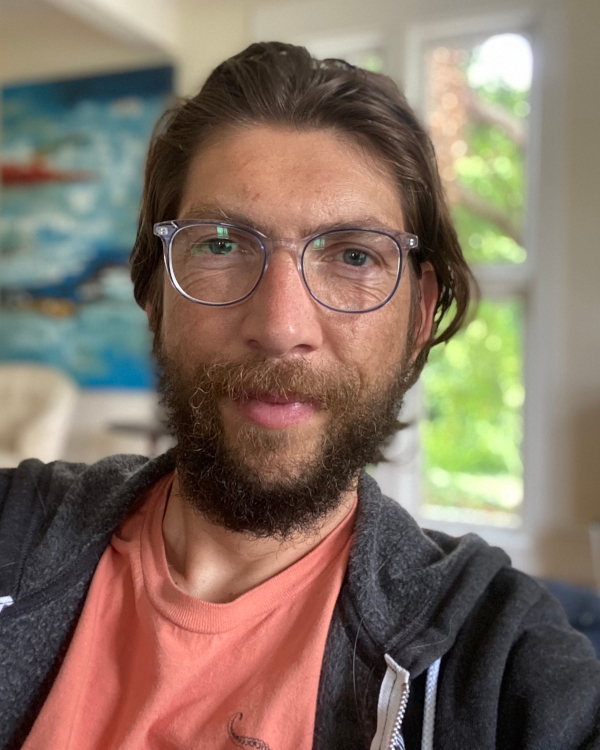
Liam J. Holt, Ph.D.
New York University Grossman School of Medicine
Project Title: The Physical Biology of Neurodegeneration in Sporadic Amyotrophic Lateral Sclerosis/Frontotemporal Dementia
Grant ID: R01-NS127186
MPIs: Jenna M. Gregory, M.B.Ch.B., Ph.D., Hemali Phatnani, Ph.D., and Ai Yamamoto, Ph.D.
Funded by the National Institute of Neurological Disorders and Stroke
Liam completed his Ph. D. at UCSF in 2009, was a Bowes Fellow at UC Berkeley and is currently Associate Professor at New York University. His lab studies how mechanical compression affects cells, and how the physical properties of the cell interior affect biochemistry in both normal biology and disease. He cofounded Science Sketches (www.sciencesketches.org), an online dictionary of science videos, now partnered with the Explorer’s Guide to Biology (www.explorebiology.org) and MBoC Journal; and Inspire Science (www.inspiresci.org), a symposium about maintaining happiness in a challenging career.
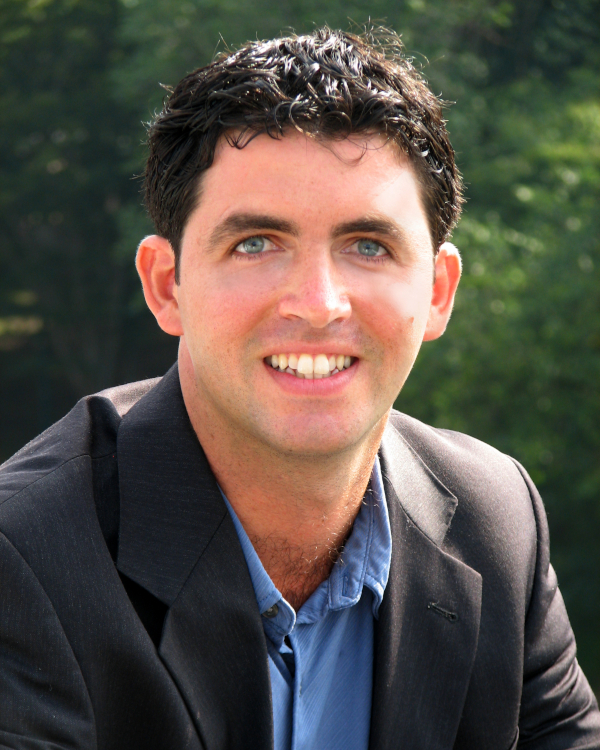
Manolis Kellis, Ph.D., M.Eng.
MIT; Broad Institute
Project Title: Identification of TDP-43 Modifiers Through Single-Cell Transcriptional and Epigenomic Dissection of ALS and FTLD-MND
Grant ID: R01-NS127187
MPIs: Veronique V. Belzil, Ph.D., Christopher Donnelly, Ph.D., and Myriam Heiman, Ph.D.
Funded by the National Institute of Neurological Disorders and Stroke and NIH Common Fund
Manolis Kellis is a professor of computer science at MIT, a member of the Broad Institute of MIT and Harvard, a principal investigator of the Computer Science and Artificial Intelligence Lab at MIT, and head of the MIT Computational Biology Group (compbio.mit.edu). His research focuses on disease circuitry, genetics, genomics, epigenomics, protein-coding genes, non-coding RNAs, regulatory genomics, and comparative genomics, applied to Alzheimer's Disease, ALS, FTLD, Schizophrenia, Obesity, Cardiac Disorders, Cancer, Immune Disorders, and multiple other disorders, and he has played leadership roles in several large-scale genomics projects, including the Roadmap Epigenomics project, the ENCODE project, the Genotype Tissue-Expression (GTEx) project, and comparative genomics projects in mammals, flies, and yeasts. He received the US Presidential Early Career Award in Science and Engineering (PECASE) by US President Barack Obama, the Mendel Medal for Outstanding Achievements in Science, the NSF CAREER award, the Alfred P. Sloan Fellowship, the Technology Review TR35 recognition, the AIT Niki Award, and the Sprowls award for the best Ph.D. thesis in computer science at MIT.He has authored over 240 journal publications cited more than 119,000 times, and his trainees hold faculty positions at Stanford, Harvard, CMU, McGill, Johns Hopkins, UCLA, and other top universities. He lived in Greece and France before moving to the US, and he studied and conducted research at MIT, the Xerox Palo Alto Research Center, and the Cold Spring Harbor Lab.
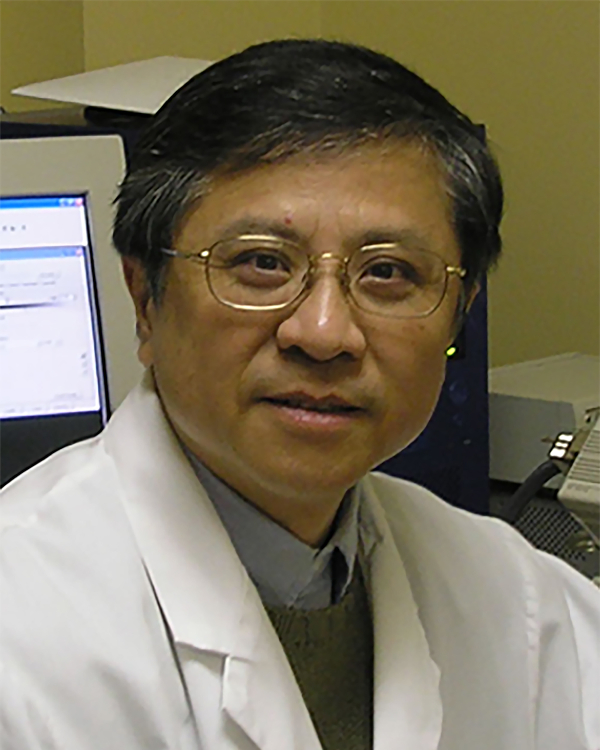
Qun Lu, Ph.D.
Brody School of Medicine at East Carolina University
Project Title: Homeostatic Reset as a New Therapeutic Paradigm for Slow Progression Diseases
Grant ID: R01-GM146257
Funded by the National Institute of Neurological Disorders and Stroke and NIH Common Fund
Qun Lu, PhD, is a Professor of Anatomy and Cell Biology at Brody School of Medicine of East Carolina University and the founding director of The Harriet and John Wooten Laboratory for Alzheimer’s’ and Neurodegenerative Diseases Research. Dr. Lu received PhD degree from Emory University School of Medicine and was a research fellow and instructor at Harvard Medical School and Center for Neurologic Diseases of Brigham and Women’s Hospital in Boston, Massachusetts until 2000. Dr. Lu’s research focuses on understanding and targeting complex human diseases such as neurodegenerative and neurodevelopmental disorders as well as cancer. Dr. Lu pioneered the discovery of innovative small molecules that bear bidirectional modulation of small GTPase signaling. Dr. Lu hopes to uncover new paradigms of their unique, homeostatic modulation mechanisms and exploit therapeutic potential for progressive human disorders such as Alzheimer’s disease and Amyotrophic lateral sclerosis.
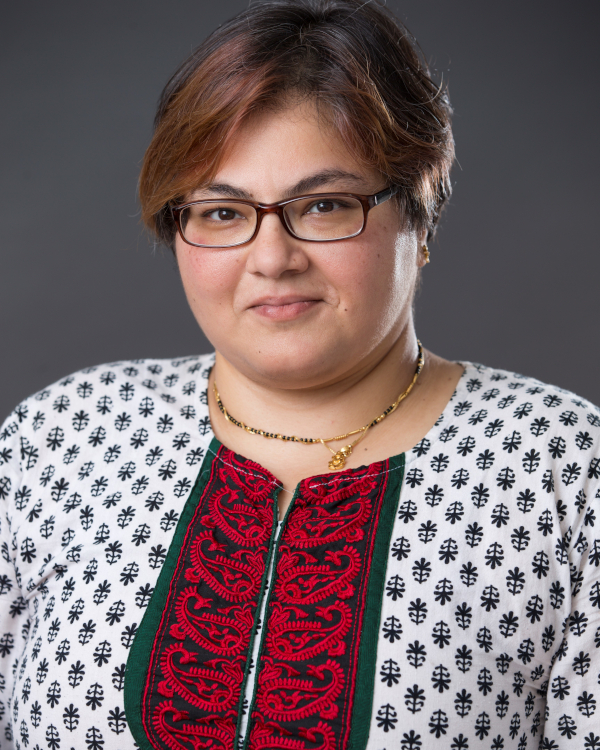
Hemali Phatnani, Ph.D.
Columbia University Irving Medical Center; New York Genome Center
Project Title: The Physical Biology of Neurodegeneration in Sporadic Amyotrophic Lateral Sclerosis/Frontotemporal Dementia
Grant ID: R01-NS127186
MPIs: Jenna M. Gregory, M.B.Ch.B., Ph.D., Liam J. Holt, Ph.D., and Ai Yamamoto, Ph.D.
Funded by the National Institute of Neurological Disorders and Stroke
I am jointly appointed to the Department of Neurology at Columbia University Irving Medical Center and the New York Genome Center, where I direct the Center for Genomics of Neurodegenerative Disease. My research program focuses on using novel tools and technologies in conjunction with cellular and animal models and patient-derived tissue samples to understand how disease-associated mutations perturb intercellular interactions in the tissue microenvironment in ALS-FTD. To understand the role of intercellular interactions in disease, we apply spatially-resolved transcriptomic and proteomic approaches to deconvolve both spatial and cell-type specific changes in gene expression across entire brain or spinal cord regions from rodent and human post-mortem tissue. We develop novel computational and analytical tools specifically tailored to overcoming the unique analytical challenges associated with such complex data sets. Our approaches can be broadly applied to any neurodegenerative disease, and our data are broadly shared, so that they may provide a platform for other investigators to unveil markers specific to their disease of study.
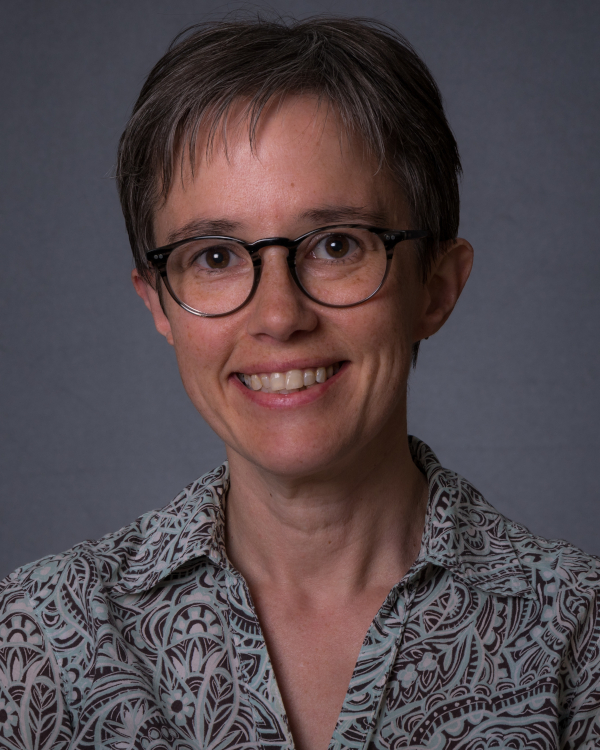
Maureen A. Sartor, Ph.D.
University of Michigan
Project Title: Developing Novel Strategies for Personalized Treatment and Prevention of ALS: Leveraging the Global Exposome, Genome, Epigenome, Metabolome, and Inflammasome with Data Science in a Case/Control Cohort
Grant ID: R01-NS127188
MPIs: Stuart Batterman, Ph.D., Eva L. Feldman, M.D., Ph.D., and Stephen Goutman, M.D., M.S.
Dr. Sartor is a Professor of Computational Medicine and Bioinformatics in the Medical School, and of Biostatistics in the School of Public Health, at University of Michigan. She serves as co-Director of the Bioinformatics Graduate Program and is lead of omics and bioinformatics for the Michigan Center on Lifestage Environmental Exposures and Disease (M-LEEaD). Her work focuses on developing bioinformatics methods and tools for the analysis and interpretation of omics data, especially applied to cancer and environmental health sciences.

Ai Yamamoto, Ph.D.
Columbia University
Project Title: The Physical Biology of Neurodegeneration in Sporadic Amyotrophic Lateral Sclerosis/Frontotemporal Dementia
Grant ID: R01-NS127186
MPIs: Jenna M. Gregory, M.B.Ch.B., Ph.D., Liam J. Holt, Ph.D., and Hemali Phatnani, Ph.D.
Funded by the National Institute of Neurological Disorders and Stroke
Ai Yamamoto is an Associate Professor in the Departments of Neurology, and Pathology and Cell Biology at Columbia University. After graduating with a Bachelor’s degree in Material Science and Engineering from MIT, she received her Ph.D. with Dr. René Hen at Columbia University, and was a Helen Hay Whitney Postdoctoral Fellow with Dr. Jim Rothman at Memorial Sloan Kettering Cancer Center. The goal of her lab is to define how protein trafficking pathways can be modulated to impact neurodegeneration, by examining these question within the context of the adult brain. Her work in Huntington’s disease was recently recognized by the Hereditary Disease Foundation, as an awardee of the 2021 Leslie Gehry Brenner prize for Innovation in Science.
Emergency COVID-19 Awards Supported Through the CARES Act

Vaithilingaraja Arumugaswami, D.V.M., Ph.D.
University of California, Los Angeles; David Geffen School of Medicine
Project Title: Metabolic and Epigenetic Reprogramming of Vital Organs in SARS-CoV-2 Induced Systemic Toxicity
Grant ID: R01-DK132735
MPIs: Arjun Deb, M.D., Thomas G. Graeber, Ph.D., and Matteo Pellegrini, Ph.D.
Dr. Arumugaswami is a virologist and stem cell biologist with a research focus on understanding pathogenic mechanisms of diseases caused by pandemic potential RNA viruses, including Corona, Dengue, Zika and Chikungunya viruses. Dr. Arumugaswami’s laboratory is actively working on developing pan-antiviral agents and vaccine strategies; and has established several cell, organoid and animal model systems. Dr. Arumugaswami received his Veterinary degree in Indian Veterinary Research Institute and PhD at University of Arkansas followed by postdoctoral fellowship at University of California, Los Angeles. Currently, Dr. Arumugaswami is a faculty member in the Department of Molecular and Medical Pharmacology, UCLA. In addition, Dr. Arumugaswami continues to foster several international academic and industrial research collaborations.
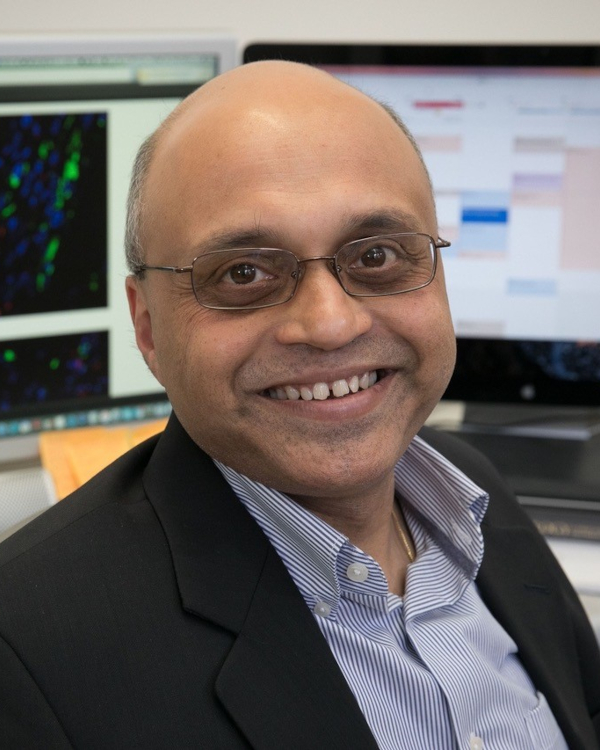
Arjun Deb, M.D.
David Geffen School of Medicine, University of California, Los Angeles
Project Title: Metabolic and Epigenetic Reprogramming of Vital Organs in SARS-CoV-2 Induced Systemic Toxicity
Grant ID: R01-DK132735
MPIs: Vaithilingaraja Arumugaswami, D.V.M., Ph.D., Thomas G. Graeber, Ph.D., and Matteo Pellegrini, Ph.D.
Arjun Deb is a physician-scientist and a Professor of Medicine (Cardiology) and Molecular, Cell and Developmental Biology at the University of California, Los Angeles. His laboratory studies the biology of tissue repair and scarring in the heart and other organs. He has made important contributions to our understanding of how cellular plasticity and the extracellular matrix regulate tissue repair and how such processes can be therapeutically targeted to attenuate dysregulated wound healing and tissue fibrosis. He is an elected member of the American Society of Clinical Investigation and a recipient of the Research Excellence prize from the British Society of Cardiovascular Research. His laboratory has been funded by the NIH, DoD and CIRM.
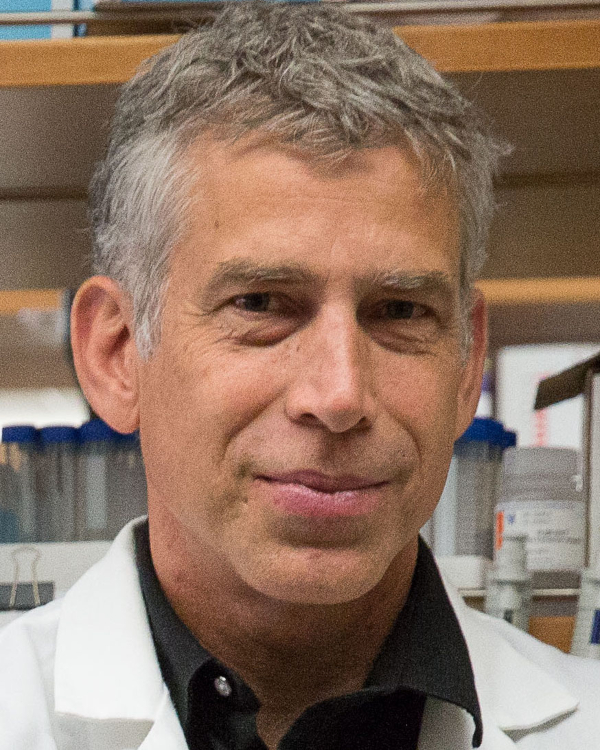
Thomas G. Graeber, Ph.D.
David Geffen School of Medicine, University of California, Los Angeles
Project Title: Metabolic and Epigenetic Reprogramming of Vital Organs in SARS-CoV-2 Induced Systemic Toxicity
Grant ID: R01-DK132735
MPIs: Vaithilingaraja Arumugaswami, D.V.M., Ph.D., Arjun Deb, M.D., and Matteo Pellegrini, Ph.D.
My group is working to understand cancer and disease signaling and metabolism, resistance to molecularly targeted drugs, and immune function from a systems viewpoint. Our recent projects have emphasized cellular changes in identity (e.g. transdifferentiation) to escape targeted therapies, and new resulting vulnerabilities such as ferroptosis sensitivity. In this work, we have pioneered using genome scale approaches (e.g. phospho-proteomics, metabolomics) side by side with targeted approaches (e.g. antibody-based) in iterative experimentation to simultaneously build a network-scale and a molecularly detailed view of biological process¬es. Data from our unbiased approaches has repeatedly led us to characterize feedback loops and synergies in cancer and immune biology. I am director of the UCLA Metabolomics Center.

Jeniffer B. Hernandez, Ph.D.
Keck Graduate Institute
Project Title: Rapid Response for Pandemics: Single Cell Sequencing and Deep Learning to Predict Antibody Sequences Against an Emerging Antigen
Grant ID: R01-AI169543
MPI: Stefano Lonardi, Ph.D., Matthew Sazinsky, Ph.D., and Animesh Ray, Ph.D.
Dr. Jeniffer B. Hernandez received her Ph.D. from the University of California, Irvine and conducted research in the laboratory of Dr. Craig M. Walsh. During her PhD training, Dr. Hernandez discovered that mice deficient in the serine-threonine kinase, DRAK2, were resistant to autoimmune disease due to a defect in T cell survival. As a post-doctoral fellow in the laboratory of Dr. Marc Montminy at the Salk Institute in San Diego, California she discovered a new role for the hormonal and metabolic sensor CREB and its co-activator CRTC2 in T cell development and function. Dr. Hernandez is currently an associate professor at the Keck Graduate institute in Claremont, California with a focus on identifying drug targets to selectively inhibit Th17 cells for the treatment of Th17 cell-mediated diseases, such as Multiple Sclerosis.
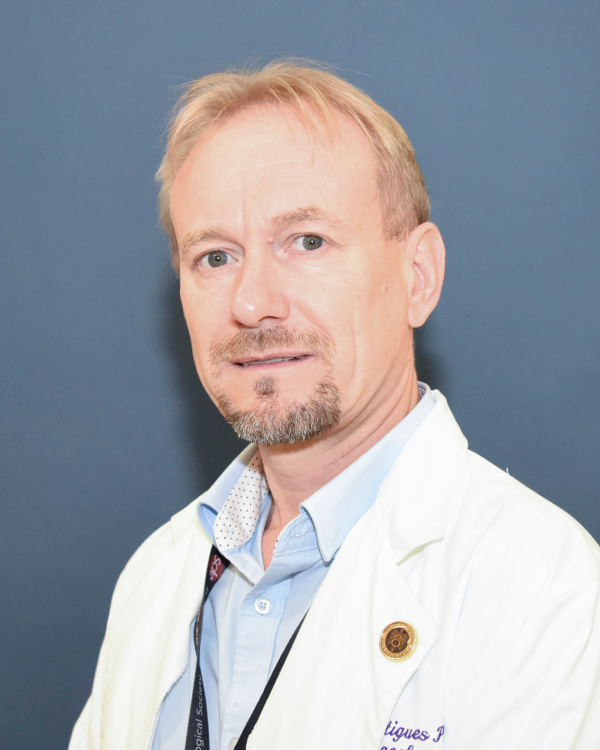
Eric Lazartigues, Ph.D.
Louisiana State University Health, New Orleans; Southeast Louisiana Veterans Healthcare System
Project Title: SARS-CoV-2 Tropism in the Brain and Its Relationship to COVID-19 Pathogenesis
Grant ID: R01-HL163814
MPIs: Chien-Te Kent Tseng, Ph.D. and Abraam M. Yakoub, Pharm.D., Ph.D.
Dr. Eric Lazartigues, Professor of Pharmacology & Neuroscience, received his PhD from the University Paul Sabatier of Sciences in Toulouse, France in 1999. He completed his postdoctoral work at The University of Iowa School of Medicine and joined LSU Health in New Orleans in 2005. Since 2003, Dr. Lazartigues' research has focused on ACE2 (the SARS-CoV-2 receptor) in hypertension and diabetes, using gain and loss of function in mouse models. After showing ACE2 expression in the brain, his group identified post-translational mechanisms involved in ACE2 downregulation. Current work investigates the clinical relevance of these mechanisms in cardiovascular diseases and COVID-19.
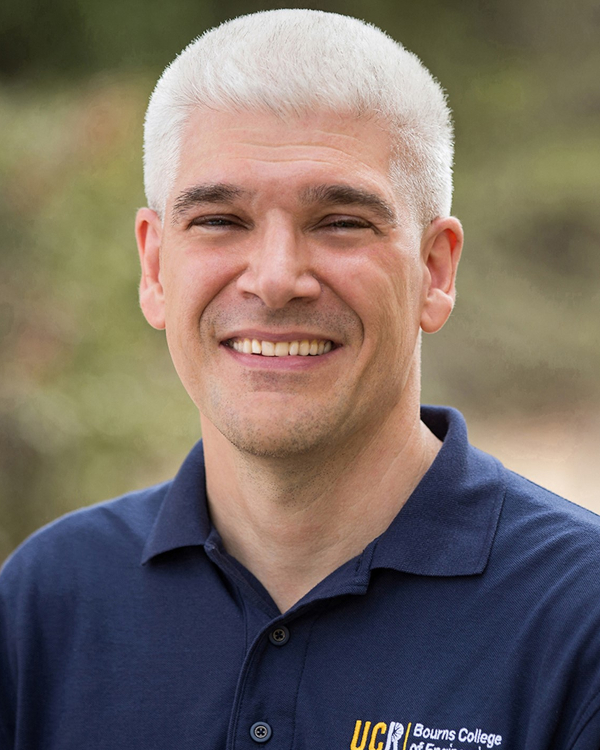
Stefano Lonardi, Ph.D.
University of California, Riverside
Project Title: Rapid Response for Pandemics: Single Cell Sequencing and Deep Learning to Predict Antibody Sequences Against an Emerging Antigen
Grant ID: R01-AI169543
MPIs: Jeniffer B. Hernandez, Ph.D., Animesh Ray, Ph.D., and Matthew Sazinsky, Ph.D.
Stefano Lonardi is Professor and Vice Chair of the Department of Computer Science and Engineering at University of California, Riverside. He is also a faculty member of the Graduate Program in Genetics, Genomics and Bioinformatics, the Center for Plant Cell Biology, the Institute for Integrative Genome Biology, and the Graduate Program in Cell, Molecular and Developmental Biology. Dr. Lonardi received his Ph.D. in Computer Science from Purdue University. He also holds a doctorate degree in Electrical and Information Engineering from University of Padua, Italy. The research of his lab focuses on the development of novel and efficient analytical methods for epigenetics and genomics data.

Ricardo Mancebo, Ph.D.
GenEndeavor
Project Title: Development of a Handheld Rapid Air Sensing System to Monitor and Quantify SARS-CoV-2 in Aerosols in Real-Time
Grant ID: R01-DE031927
Dr. Mancebo received his Ph.D., M.Phil., and M.A. in Biological Sciences from Columbia University. Dr. Mancebo initiated his postdoctoral research at Yale University, Howard Hughes Medical Institute, and completed his postdoctoral training at Stanford University. Dr. Mancebo has worked for over 19 years in the San Francisco Bay Area developing cutting-edge genomics technologies and products in the biotech industry. He founded GenEndeavor to develop a new generation of non-enzymatic assay technology platforms to break existing diagnostic barriers. His mission is to empower very early screening of genetic and infectious diseases while they are still treatable, and to enable rapid POC testing at a cost that is orders of magnitude lower than current enzyme-based technologies.
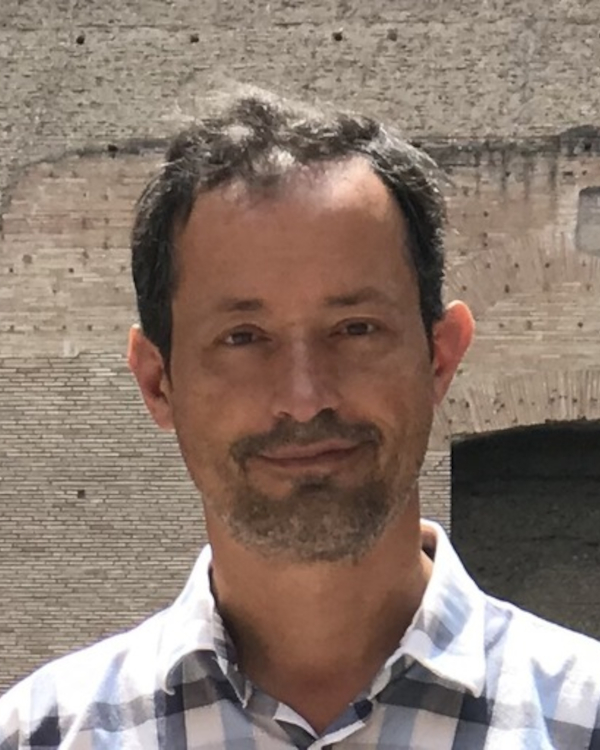
Matteo Pellegrini, Ph.D.
University of California Los Angeles
Project Title: Metabolic and Epigenetic Reprogramming of Vital Organs in SARS-CoV-2 Induced Systemic Toxicity
Grant ID: R01-DK132735
MPIs: Vaithilingaraja Arumugaswami, D.V.M., Ph.D., Arjun Deb, M.D., and Thomas G. Graeber, Ph.D.
Matteo Pellegrini is a biophysicist who has served on the UCLA Life Sciences Division faculty since he joined the Department of Molecular, Cell and Developmental Biology in 2005. Dr. Pellegrini earned his B.A. in Physics at Columbia University and his Ph.D. in Physics at Stanford. He was a postdoctoral fellow at UCLA, where he worked on computational biology. Following his postdoctoral studies, Dr. Pellegrini co-founded a start-up company and later worked for the pharmaceutical company, Merck, before returning to UCLA. His laboratory research centers on the development of novel computational approaches to analyze large-scale genomic data.
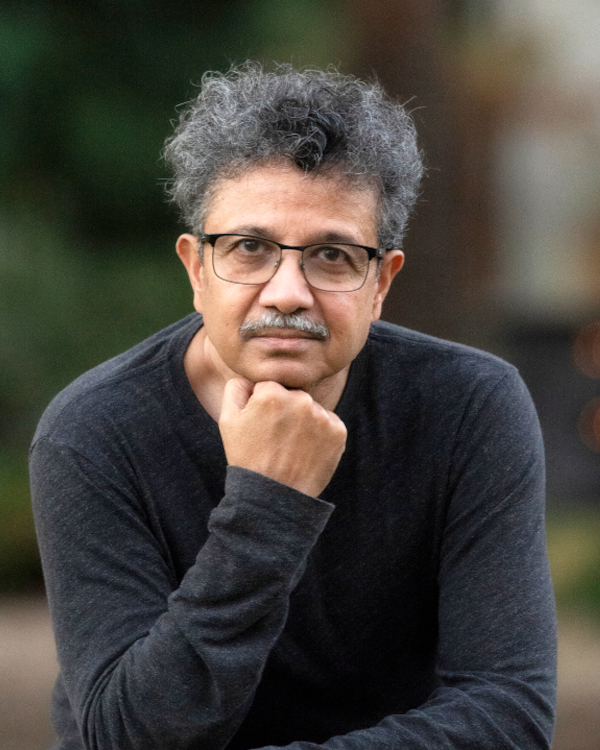
Animesh Ray, Ph.D.
Keck Graduate Institute; California Institute of Technology
Project Title: Rapid Response for Pandemics: Single Cell Sequencing and Deep Learning to Predict Antibody Sequences Against an Emerging Antigen
Grant ID: R01-AI169543
MPI: Jeniffer B. Hernandez, Ph.D., Stefano Lonardi, Ph.D., and Matthew Sazinsky, Ph.D.
Animesh Ray grew up in India, obtained his PhD in microbial genetics from Monash University, Australia, and did postdoctoral work with Dr. Franklin W. Stahl (Institute of Molecular Biology, University of Oregon) and Dr. Ethan R. Signer (MIT). In 1985-95 he explored how in vivo chromosomal breaks delivered by a naturally occurring zinc-finger protein could stimulate homologous recombination—these results formed some of the fundamentals on which today’s CRISPR-mediated gene targeting became feasible. In 1994-2004, his laboratory contributed key insights into genetic mechanisms of plant reproductive biology and early embryogenesis, which led to the discovery of the Dicer group of genes in plants. During this same period, he and his computer science colleague Dr. Mitsunori Ogihara explored the limits of massively parallel computation with DNA. Since 2003, Animesh’s lab has been interested in genetic and protein network properties that contribute to evolutionary robustness and plasticity of the genome, and whether machine learning can predict protein-protein interaction networks.
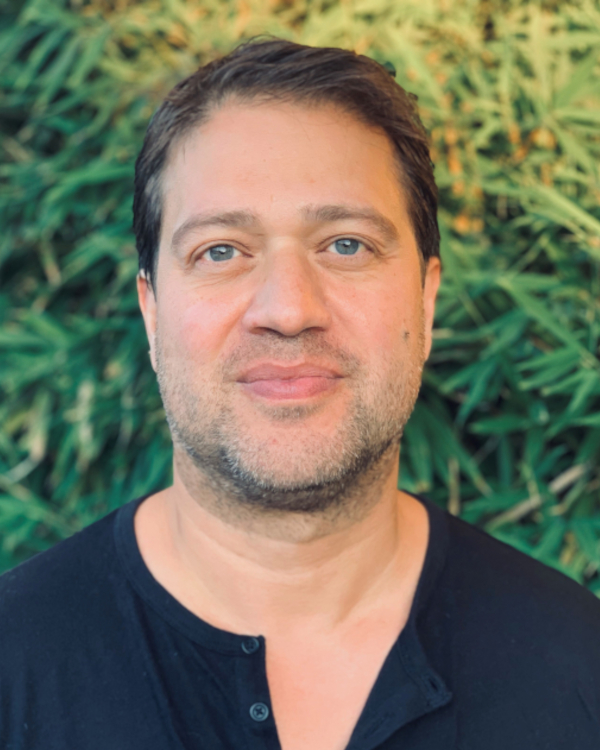
Robert Rodick
VxBiosciences; Gladstone Institutes (Visiting Researcher)
Project Title: Autonomously Deploying, Co-Evolving SARS-CoV-2 Antiviral: A New Paradigm for Pandemic Prevention
Grant ID: R01-AI169443
MPI: Leor Weinberger, Ph.D.
Robert Rodick is co-founder of VxBiosciences, a translational medicine company developing therapeutic countermeasures for evolving pathogens and diseases. VxBiosciences seeks to further the advancement of medical science by developing rapidly deployable therapies that overcome resistance for emerging and existing infectious diseases. Mr Rodick spent two decades building computational models for quantitative financial applications, and has pursued a multi-year collaboration with Professors Bin Yu and Kurt Keutzer, UC Berkeley, on machine learning applied to computer vision, finance, and natural language.
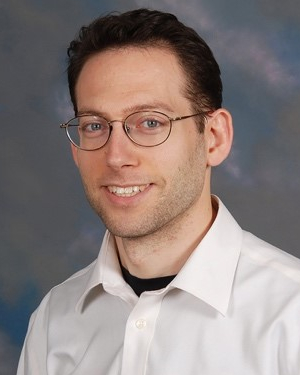
Matthew Sazinsky, Ph.D.
Pomona College
Project Title: Rapid Response for Pandemics: Single Cell Sequencing and Deep Learning to Predict Antibody Sequences Against an Emerging Antigen
Grant ID: R01-AI169543
MPIs: Jeniffer B. Hernandez, Ph.D., Stefano Lonardi, Ph.D. and Animesh Ray, Ph.D.
Matthew Sazinsky is a Professor of Chemistry at Pomona College. He graduated from Haverford College with a B.S. in Chemistry, received his Ph.D. in Biological Chemistry from the Massachusetts Institute of Technology with Stephen Lippard, and then studied at Northwestern University with Amy Rosenzweig as a National Institutes of Health Post-Doctoral Fellow. His research primarily utilizes expertise structural biology and enzymology to provide deeper insight into the function of proteins and processes related to the nutrient uptake, metabolism and survival of microorganisms.
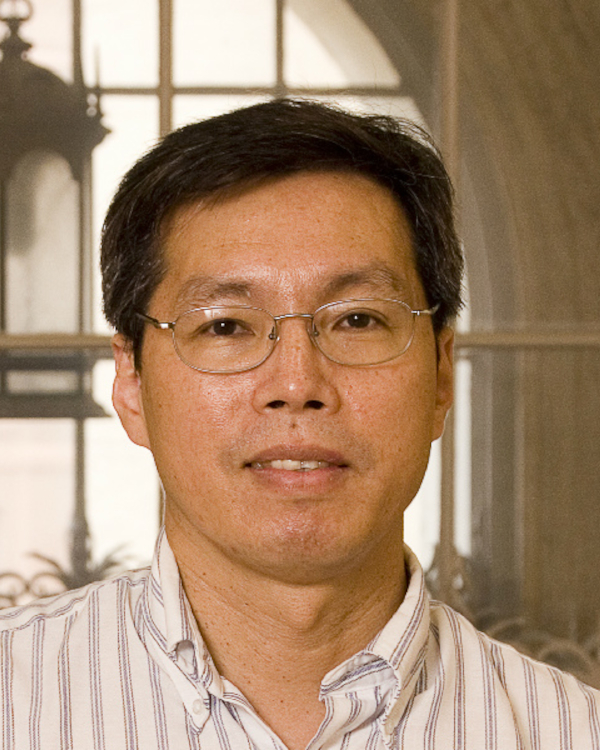
Chien-Te Kent Tseng, Ph.D.
University of Texas Medical Branch
Project Title: SARS-CoV-2 Tropism in the Brain and Its Relationship to COVID-19 Pathogenesis
Grant ID: R01-HL163814
MPIs: Eric Lazartigues, Ph.D. and Abraam M. Yakoub, Pharm.D., Ph.D.
Chien-Te Kent Tseng is a professor in the Departments of Microbiology and Immunology, Pathology, and Cell Biology and the Center of Biodefense and Emerging Disease at University of Texas Medical Branch. Dr. Tseng received his undergraduate training in Plant Pathology at National Chung Hsing University in Taiwan, did his M.S. and Ph.D. thesis and dissertation in the field of Immunology at Mississippi State University and University of Arkansas Medical Sciences, respectively, and did his postdoctoral training in HCV research at University of Texas Medical Brach. Over the past 18+ years, Tseng lab has been focused on characterization of the pathogenesis and development of effective medical countermeasures (MCMs) against zoonotic human b-coronaviruses (CoVs). Among other contributions in this fields, his lab is most well-known for their ability to establish and characterize animal models for studies of pathogenesis of SARS-CoV-1, MERS-CoV, and SARS-CoV-2 and evaluation of immunogenicity, efficacy, and safety of MCMs. His work has been recognized by multiple grant and contract awards of various sources.
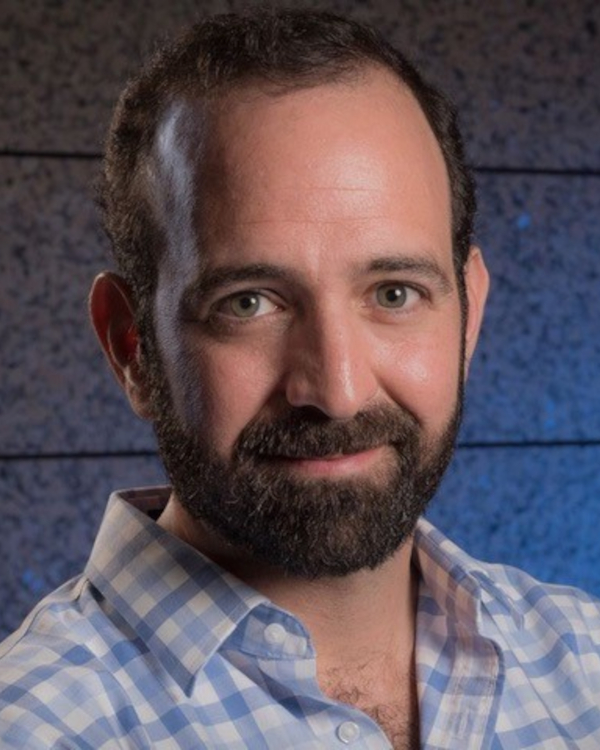
Leor Weinberger, Ph.D.
UCSF/Gladstone; VxBiosciences
Project Title: Autonomously Deploying, Co-Evolving SARS-CoV-2 Antiviral: A New Paradigm for Pandemic Prevention
Grant ID: R01-AI169443
MPI: Robert Rodick
Leor Weinberger is a virologist and synthetic biologist credited with discovering the HIV latency circuit (Weinberger et al., 2005) and providing the first demonstration that stochastic transcriptional fluctuations (‘noise’) drive fate-specification decisions. His lab discovered noise-enhancer molecules (Dar et al., 2014), which potentiate cell-fate transitions—now used by others for modulating circadian rhythms—and recently discovered an ancient cellular pathway that actively regulates transcriptional noise (Desai et al., 2021). Weinberger is also credited with the concept of Therapeutic Interfering Particles, TIPs (see TED talk), which led the US Dept. of Defense to launch the DARPA INTERCEPT program that funded over a dozen academic labs around the world from 2015–20. Recently, the NIH and DoD substantially expanded the TIP program to support clinical trials of TIPs for HIV and COVID-19. Weinberger has received the NIH Director’s Pioneer, Avant-Garde, and New Innovator Awards.
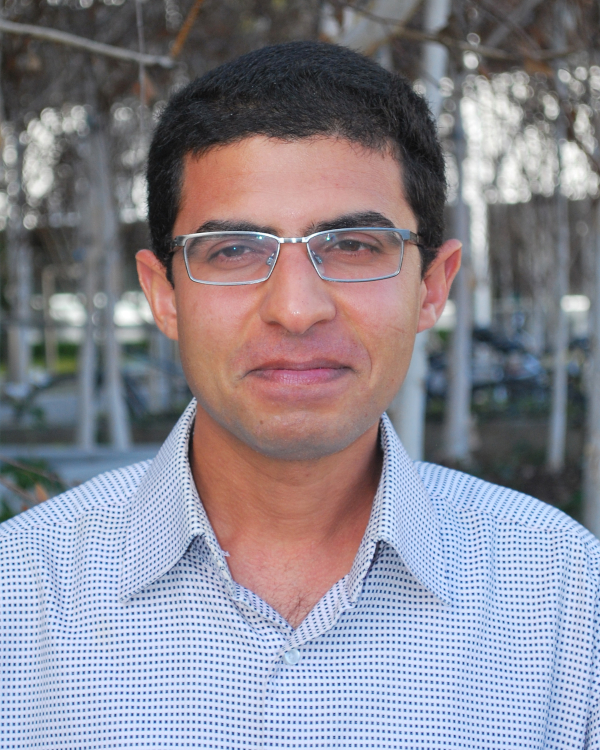
Abraam M. Yakoub, Pharm.D., Ph.D.
University of North Dakota
Project Title: SARS-CoV-2 Tropism in the Brain and Its Relationship to COVID-19 Pathogenesis
Grant ID: R01-HL163814
MPIs: Eric Lazartigues, Ph.D. and Chien-Te Kent Tseng, Ph.D.
Abraam Yakoub is an Assistant Professor of Biomedical Sciences and of Biomedical Engineering at the University of North Dakota. He received his PhD from the University of Illinois, and received postdoctoral training at Harvard and Stanford Universities. Abraam is passionate about innovation, pursuing revolutionary ideas to overcome grand problems in science and medicine. He leads an interdisciplinary research program focused on brain functions and brain diseases, including understanding virus-brain interactions and their role in the pathogenesis of brain diseases, developing gene therapies inspired by cell biology processes (e.g. autophagy) for brain diseases, and other topics in basic and disease neuroscience. To achieve these goals, the Yakoub lab uses cutting-edge technologies and model systems, such as genetically engineered mouse models, in-vivo neuroscience approaches, stem cells, human brain organoids, synthetic biology, and virus and protein engineering. Abraam’s utmost pleasure is relentlessly pursuing scientific discovery and carving a transformative impact on his students’ lives and careers.


